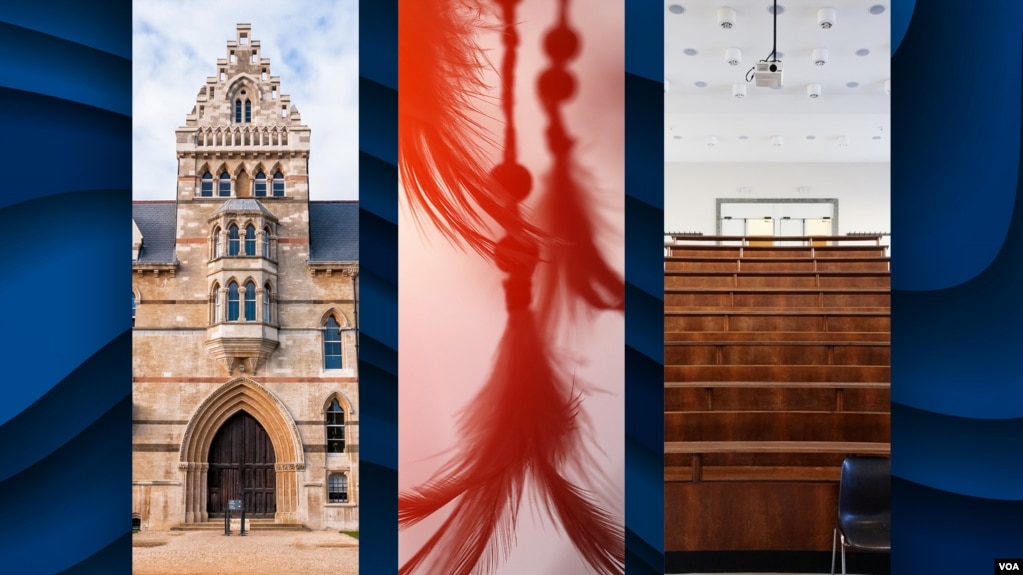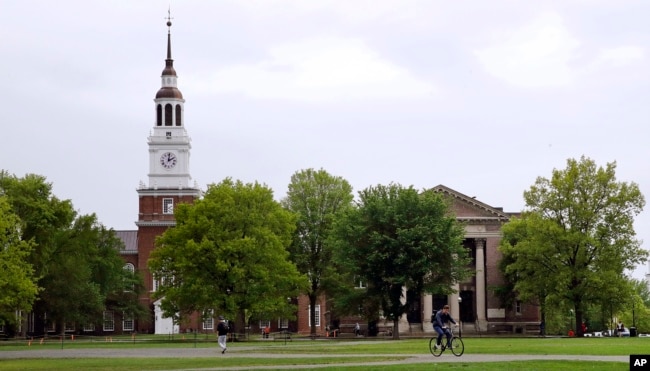
Across North America, academics have allegedly manufactured indigenous identity for personal, professional and financial gain.
In June 2021, an anonymous report began to spread among Canada’s university system. It accused six professors and employees at Queen’s College in Ontario of lying about their ancestry for personal gain.
“Queen’s College is currently overrun with white Canadians making false claims to Indigenous — especially Algonquin — identity,” the document reads. As a result, it said, the six were getting special treatment from the school and should be dismissed from their positions.
The report also said that there were other college employees who falsely claim to be Native Americans, although it did not name any.
The college rejected the accusations which led to wider protest. A group of 100 Indigenous scholars quickly condemned Queen’s College in a written statement.
It said the school employs whites presented as Indigenous professionals who claim, “both trauma and healing that never belonged to them….” It argued that the school should require evidence of such claims, saying some are based on a single, old, family story or less. The scholars criticized the school for permitting such people to gain from lying about their ancestry and experiences.
The protest letter demanded that Queen’s College and all higher-education centers establish ethical employment guidelines. It said they must include a process to confirm the ancestry claims of job seekers.
Not only a problem in Canada
The problem does not stop at the Canadian border, Native Americans say.
In 2015, Dartmouth College learned that the director of its Native American Program was not a member of an officially recognized tribe. The college dismissed the worker from that job and placed her in another.

University of California professor and book writer, Andrea Smith, has said she is Native American for many years. Her claim has been debated for almost as long. The New York Times wrote a long story about Smith and the ancestry issue last year.
In 2021, reporter Jacqueline Keeler began investigating people who claim to be Indigenous. Keeler, a Native American, says she has identified about 200 people she suspects are frauds — people who say they are something that they are not.
Keeler works with tribes, historians and researchers to uncover truth in claims of Native ancestry. The team examined ancestral evidence from as far back as the 1600s. Then Keeler produced a list of names of professionals who, she says, falsely claim to be Native.
VOA examined the list, which includes artists, writers, actors and many university workers. VOA is not publishing the list, as it cannot independently confirm what it reports.
Some people have criticized Keeler for leading a witch hunt. But she has strong support in Native circles.
“I don’t think Jackie intends to do anything with it,” Ben Barnes, chief of the Shawnee tribe in Oklahoma, told VOA. Natives have been protesting such fraud in U.S. universities for a long time, he said, adding that he thinks of the list as “a place for Natives to come together and say, ‘Hey, you’re not crazy.”
Long history of ‘frauds’
Outside of university life, many people have tried to profit from false Native American identity. That is one reason Native Americans try to fight against frauds.
One well-known actor, Iron Eyes Cody, often played Native Americans in movies and television programs from the 1950s to the 1980s. He was actually Italian American.
In the U.S., tribes are considered independent nations that have the right to govern themselves.

Most require proof of ancestry to join a tribe. Admission may require knowledge of the tribal language, culture and history.
Native Americans say that people considered frauds often make up stories about their ancestors.
Frauds shaping policy
In March, the University of Michigan began an online discussion about frauds in media, arts, politics and education. It was called “Unsettling Genealogies.”
Kim TallBear, a Canadian professor, took part in the event. She raised special concern about frauds who become well-known in their professions. She said some become “thought leaders” who help the government make policy.
David Cornsilk is an expert on the Cherokee Nation. He said the issue is damaging public trust in universities. University employers must be willing to investigate people they are considering for hire, he said.
Ben Barnes, the Shawnee leader, appears to agree.
“If someone asks me if I’m a resident of the state of Oklahoma, I pull out my driver’s license,” Barnes said. “Why is asking somebody to show their tribal identification card a problem?”
In March, the National Indigenous University Senior Leaders’ Association (NIUSLA) and the First Nations University of Canada (FNU) held an online discussion. Organizers called on attendees to explore the best ways to validate identity claims.
FNU President and NIUSLA co-chair Jacqueline Ottman said the process of self-identification is not working. She offered what might prove a simple solution: ask university job seekers for permission to investigate their backgrounds.
“It may become more difficult for some people to claim indigeneity, but these processes will ensure that indigenous peoples are rightly identified and stepping into these positions.”
I’m Dan Friedell. And I’m Susan Shand.
VOA’s Cecily Hilleary wrote this story. Susan Shand and Dan Friedell adapted it for Learning English.
We want to hear from you. Write to us in the Comments Section, and visit WWW.VOA-STORY.COM
Quiz – Native Scholars Work to Prevent Fraud at Universities
Start the Quiz to find out
______________________________________________________________
Words in This Story
anonymous –n. not named or identified
scholar –n. a person who has studied a subject for a long time and knows a lot about it
trauma –n. a very difficult or unpleasant experience
fraud –adj. a person who pretends to be something they are not in order to trick people
witch hunt –n. the act of unfairly looking for and punishing people
intend –v. to plan or want to do something
crazy –adj. not sane or unable to think clearly
admission –n. the act of admitting or giving permission to enter a place or school
resident –n. a person who lives in a place
license –n. an official document or card
validate –v. to show something is legal or official
ensure –v. to make something sure, certain or safe